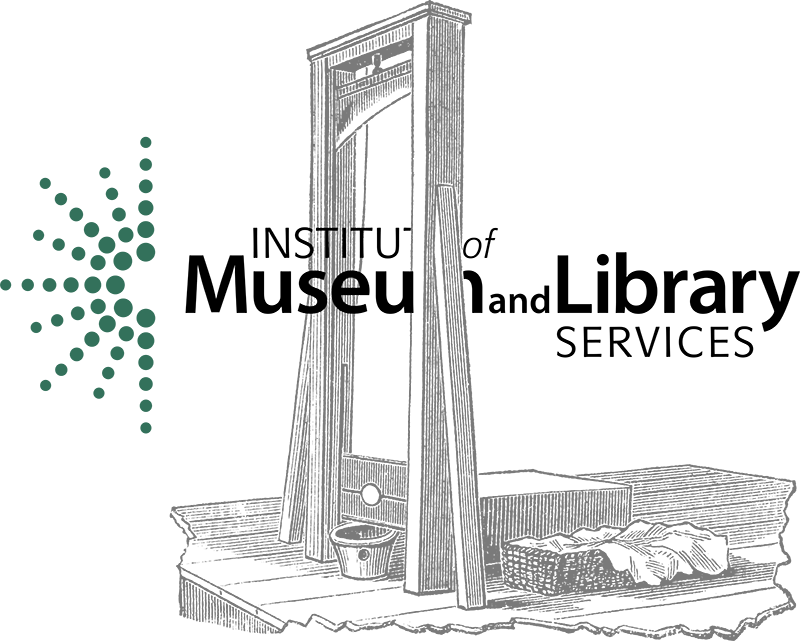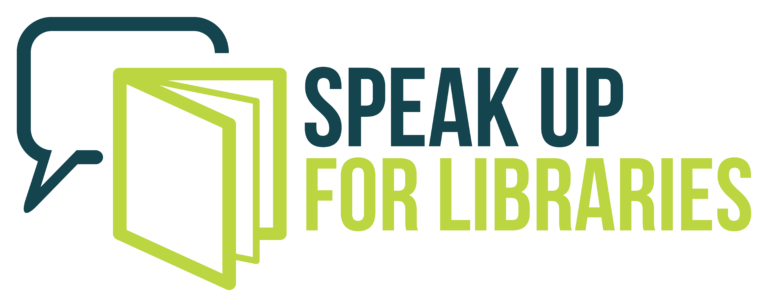Show Up for Our Libraries
What is going on?

On March 14, President Trump signed an Executive Order involving the Institute of Museum and Library Services (IMLS) and six other federal agencies.
The executive order decrees:
- each named agency is eliminated to the maximum extent of the law
- each named agency reduces its services and personnel to the minimum amount required to perform the functions required by law
- the Office of Management and Budget (OMB) will reject any budget requests from the named agencies, other than the funds needed to shut down the agencies.
Learn more about what this means here: FAQ: Executive Order Targeting IMLS
On March 21, 2025, the President replaced the agency’s leadership with the Deputy Secretary of Labor. Without leadership and staff, it’s expected that library funding will be halted.
On March 31, 2025, all Institute of Museum and Library Services (IMLS) employees were placed on administrative leave, with access to their work systems blocked.
This action puts crucial services at risk across the country—and especially here in Wisconsin. Federal law requires IMLS to provide support to public libraries, but that support is currently only guaranteed through September 2025.
How does IMLS impact Wisconsin?
Since 1997, Wisconsin has received over $55 million in IMLS funding through 248 grants. Many of these grants were matched by state, local, or private dollars—leveraging additional investment and expanding impact. Here are some areas for which the funding was used:
Access & Equity: IMLS funds support BadgerLink and WISCAT, giving Wisconsinites access to online databases and interlibrary loans statewide.
Internet Access: Grants help libraries provide internet hotspots, improve broadband, and boost digital literacy—vital in rural areas.
Innovation & Services: Funding supports modernizing libraries, launching new programs, and addressing workforce and business needs.
Staff Development: Grants fund training and education for library staff, ensuring quality services across all communities.
System Support: IMLS boosts Wisconsin’s 15 public library systems, enabling shared catalogs and efficient delivery services.
Funding Overview:
Since 1997, Wisconsin has received $55M in IMLS funds through 248 grants, including $3.2M in 2024 alone—supporting tech, education, and access statewide.
What can you do?
1. Call Your Members of Congress
Use this form to make a call in support of federal library funding. Enter your address in the form, and then click the call button to receive a phone call that connects you with your elected officials.
2. Email Your Members of Congress.
Use this form to email your members of Congress. Enter your address in the form, and then click the “Send email” button to contact your elected officials. Your customized message means the most – tell your story! Consider sharing how your library impacts your life and what the disappearance of a specific service would mean to you.
3. Help spread the Word on Social Media.
Follow this link for social media graphics and sample social posts to help get the word out.
4. Share a Short Video
The Wisconsin Department of Public Instruction (DPI) is looking to humanize the impact of federal funding on our public libraries via short video “testimonials.” These videos will be compiled and published on the DPI’s social media. Record a short video on your cell phone, computer, or tablet. Ideally, the video would be about 30-45 seconds (up to 1-minute maximum) and would speak to the importance of federal funding as it relates to public libraries (e.t. literacy, job search resources, interlibrary loan, eBooks/Audio materials). For example, you could answer such questions as:
- What does your public library mean to you?
- What service or library program do you rely on regularly and why?
- What if that service or library program went away? How would that impact your life?
- How has the public library changed your life.
Videos can be recorded either vertically or horizontally. After recording, use this Google Form to answer three questions and submit the video file.






